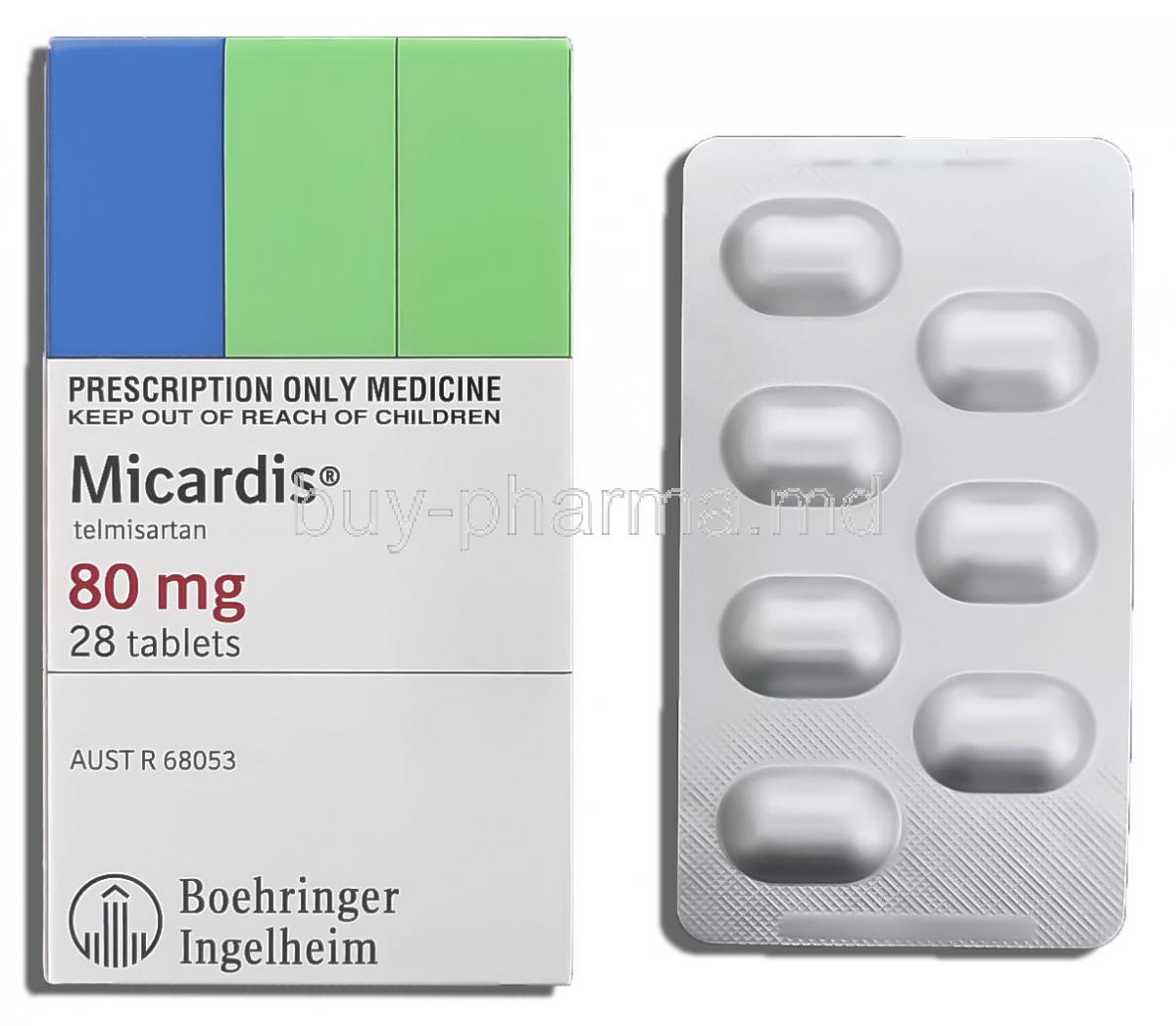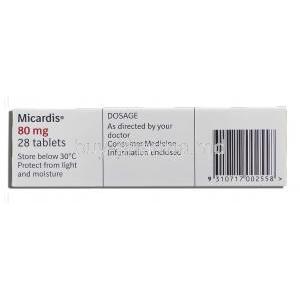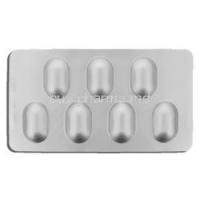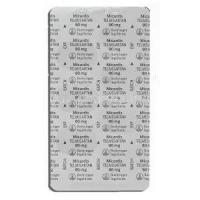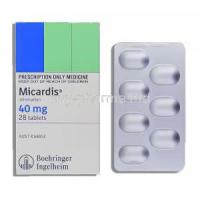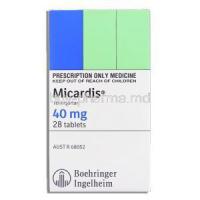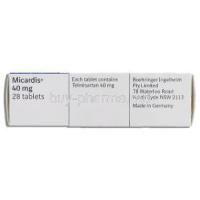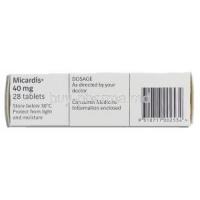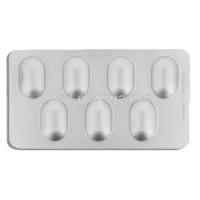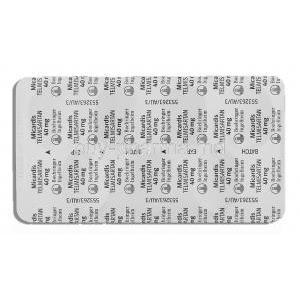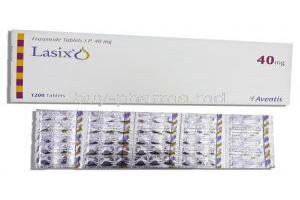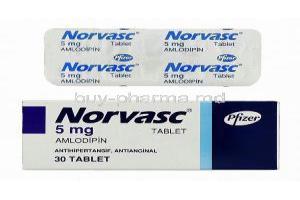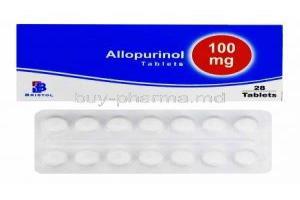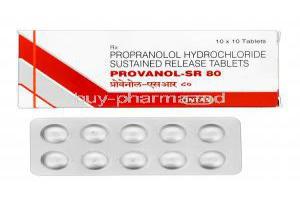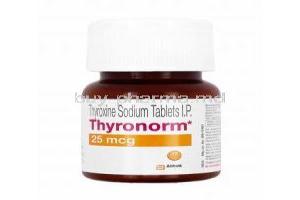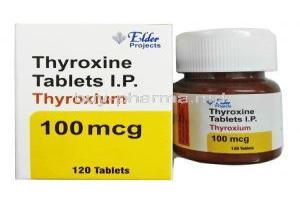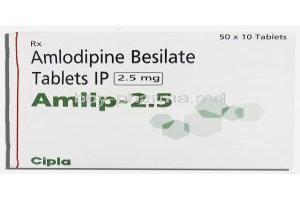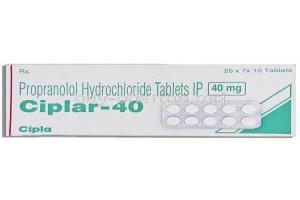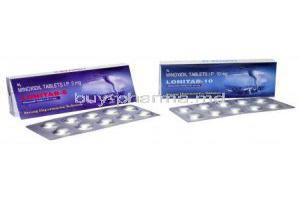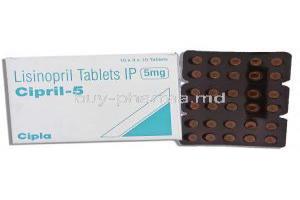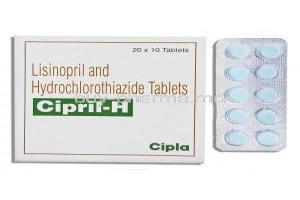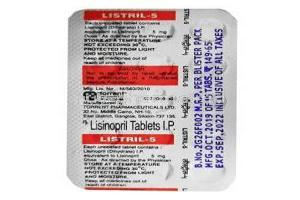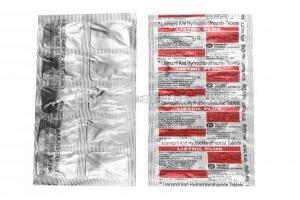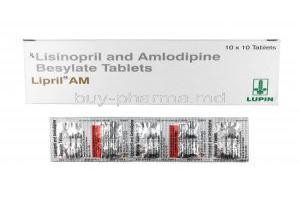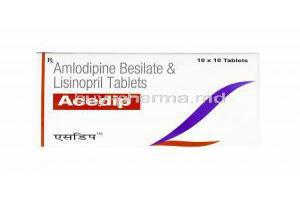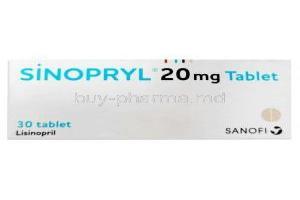Micardis
- Introduction
- Uses
- How it Works
- Side Effects
- Common Side Effects
- Off-label Use
- Dosage and Administration
- Composition
- Storage
- Interaction
- Warning
- Contraindication
- Careful Administration
- Important Precautions
- Administration to Elderly
- Administration to Pregnant Women and Nursing Mothers
- Administration to Children
- Overdosage
- Handling Precautions
Introduction
The historical background of Micardis revolves around its introduction to the field in the 1990s. As part of a group of medications called angiotensin II receptor antagonists, Micardis brought about a breakthrough in managing conditions.
Today, Micardis holds importance in modern medicine. It is highly regarded for its effectiveness and reliable outcomes in controlling blood pressure and providing care after a heart attack.
Uses
Micardis is an angiotensin II receptor blocker (ARB) that is primarily used to treat hypertension 123. It works by keeping blood vessels from narrowing, which lowers blood pressure and improves blood flow 1. Lowering blood pressure may lower the risk of a stroke or heart attack 1.
In addition to managing hypertension, Micardis has demonstrated efficacy in reducing the associated risks of other cardiovascular anomalies 4. It has also been shown to play a pivotal role in preventing secondary cardiovascular events by optimizing vascular functionality in post-myocardial infarction care 5.
Here are some references that provide more information on Micardis:
- Drugs.com: This website provides detailed information on Micardis, including its uses, dosage, side effects, and warnings.
- GoodRx: This website provides an overview of Micardis, including its uses and side effects.
- Mayo Clinic: This website provides information on Micardis, including its uses, dosage, and side effects.
- Everyday Health: This website provides information on Micardis, including its uses, dosage, and side effects.
- RxList: This website provides information on Micardis, including its uses, dosage, and side effects.
- Boehringer Ingelheim HCP Portal: This website provides information on Micardis’s efficacy in reducing cardiovascular anomalies.
How it Works
How Micardis works; Micardis works by opposing the effects of angiotensin II a substance in the body that causes blood vessels to narrow and aldosterone to be released. By blocking angiotensin II receptors Micardis helps widen blood vessels and lower blood pressure.
Effects on angiotensin II receptor; Its natural influence, on the angiotensin II receptor helps maintain blood vessels and ensures that blood pressure remains under control.
Side Effects
Possible side effects overview; Similar to medications, Micardis can cause a range of side effects in individuals. These side effects can vary from mild and common to rare and more severe.
Differentiating common from side effects; Common side effects present, as mild and temporary symptoms while rare side effects may occasionally require medical attention.
Common Side Effects
Headaches and dizziness are complaints among users, but they tend to go away as the body gets used to the medication.
Some users may feel tired or weak during the stages of treatment.
Occasionally there might be discomfort, in the abdomen indicating disturbances.
Off-label Use
Micardis (telmisartan) is an angiotensin II receptor blocker (ARB) used to treat high blood pressure (hypertension) and reduce the risk of stroke, heart attack, or death from heart problems in people who are at least 55 years old with risk factors for serious heart disorders 1. Beyond its approved indications, Micardis has been investigated for a host of off-label uses, including kidney protection in diabetic patients and potential benefits in heart failure management 2. Numerous research endeavors, both clinical and experimental, have hinted at Micardis’s expansive therapeutic potential 2.
Off-label usage always demands a meticulous risk-benefit analysis, ensuring that the potential therapeutic gains significantly outweigh the associated risks 2.
Dosage and Administration
Dosages, for adults; Usually adult dosing starts at 40mg per day. May be adjusted depending on how individuals respond to the treatment and their therapeutic objectives.
Modifications for conditions; Certain groups of people like those with liver or kidney impairments might require adjustments to their doses in order to ensure safety and effectiveness.
How it is taken; Micardis is usually taken orally in the form of tablets. It can be consumed with or without food.
Composition
The active ingredient in Micardis is Telmisartan, which works together with ingredients to ensure the drug is delivered effectively and remains stable.
Each ingredient plays a role in the effectiveness and stability of the drug. Telmisartan provides the effect while the inactive components are responsible for maintaining the drug's integrity facilitating absorption, and improving its taste to enhance patient compliance.
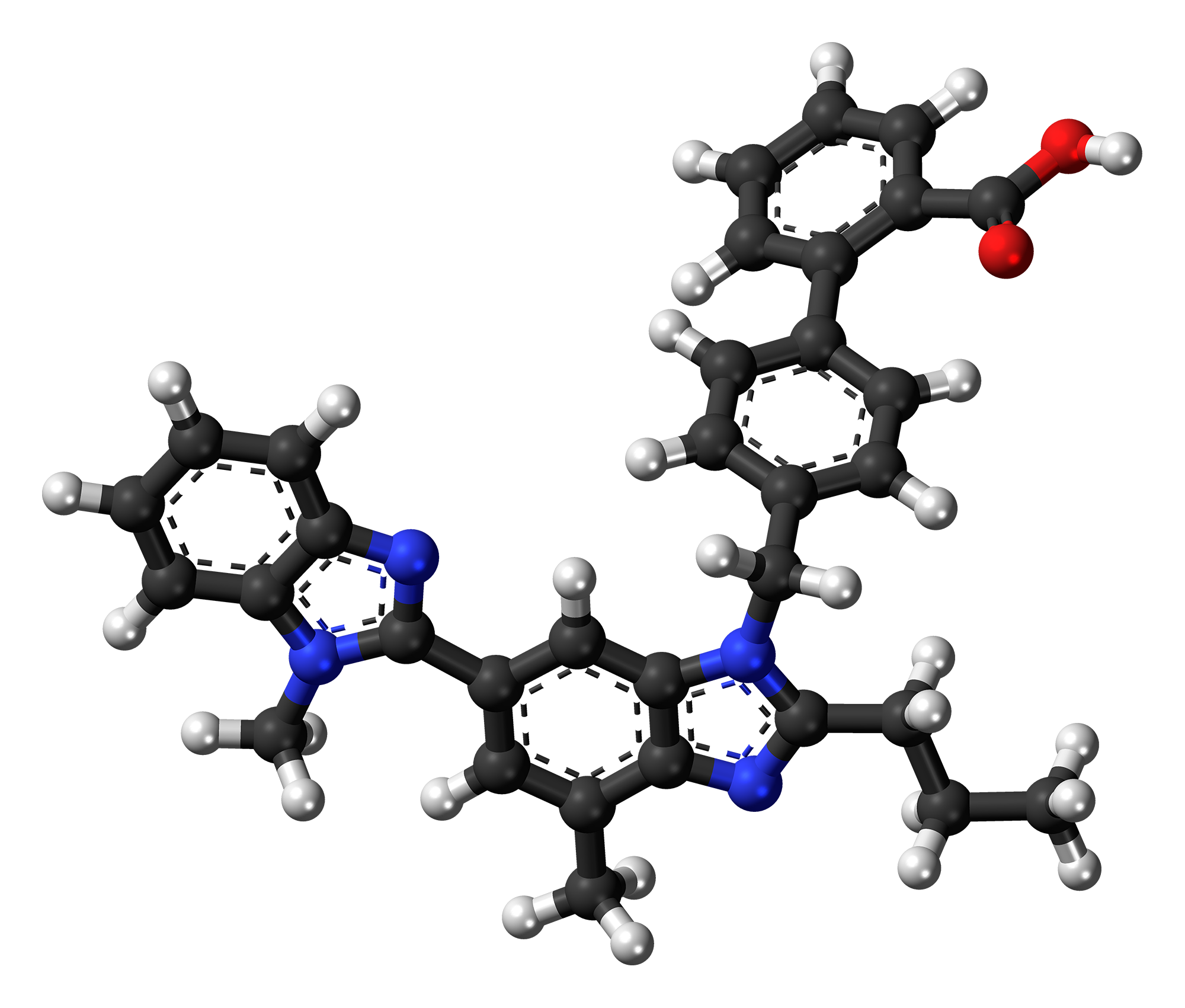
Storage
To ensure storage conditions it is recommended to keep Micardis at room temperature from direct sunlight and moisture. It is essential to store it in its packaging until you're ready to use it.
Please be mindful of the expiration date when using Micardis as its effectiveness may be compromised if used after this date. Always check the expiration date indicated on the box and avoid using expired pills.
Interaction
1. Drug interactions; Micardis may interact with medications used to treat blood pressure, potassium supplements, and certain diuretics. It is crucial to inform your healthcare provider about all the medications you are currently taking.
2. Effects, with food and alcohol; While you can take Micardis with or without food it is advisable to avoid alcohol as it can enhance the blood pressure-lowering effects of the medication and potentially cause blood pressure (hypotension).
3. Interactions with conditions: If you have kidney problems, liver disease, or congestive heart failure, it is essential to discuss any interactions between these conditions and Micardis with your physician.
Please consult your healthcare provider for advice regarding your situation.
Warning
Micardis should be used cautiously if you have artery stenosis, hyperkalemia, or a history of angioedema. It is essential to approach Micardis and under medical supervision.
In cases, Micardis can cause allergic reactions, high levels of potassium in the blood, or kidney problems that require immediate medical attention. These effects can be life-threatening.
Contraindication
Micardis should not be used by people who have a known sensitivity, to telmisartan or any of its ingredients. It is essential to be cautious when prescribing Micardis to patients, with a history of angioedema or bilateral renal artery stenosis.
Careful Administration
It is advisable, for individuals taking Micardis to monitor their blood pressure, renal function, and potassium levels to ensure that they achieve the possible treatment results while staying safe.
In addition to checking blood pressure, it can be helpful to periodically perform tests and evaluations to assess function and measure serum potassium levels. This can help identify any effects at an early stage.
Important Precautions
It is essential to be cautious when engaging in activities that require alertness like driving or operating machinery while taking Micardis. It is recommended to understand the effects of the medication on yourself before participating in activities. If you experience fatigue, palpitations, persistent nausea, or swelling of extremities it is advisable to seek medical advice.
Administration to Elderly
Dosage modifications; Older patients may experience increased sensitivity, to the blood pressure-lowering effects of Micardis, which may require starting with doses.
Special considerations for individuals; The elderly population may be at risk of experiencing renal dysfunction or hyperkalemia. Therefore, it is essential to monitor their condition.
Administration to Pregnant Women and Nursing Mothers
Safety considerations: Micardis is classified as pregnancy category D, indicating risks to the fetus during pregnancy. It should be avoided during pregnancy unless the benefits significantly outweigh the risks.
Potential risks to the developing baby: Studies have shown that Micardis can cause harm to neonatal health, including renal dysfunction, low levels of amniotic fluid (oligohydramnios), and skeletal deformations.
Exploring alternatives and recommendations: It is advisable for individuals of childbearing age who are pregnant or planning to become pregnant to discuss options with their healthcare provider. Medications available have a better safety profile for use during pregnancy.

Administration to Children
Considerations for dosing; It has not been definitively established whether Micardis is safe and effective for use in patients. If prescribed, the dosage should be tailored to the child's weight and age.
Safety and effectiveness, in the population; There is data available so any decision to give Micardis to children should be made under the supervision of a specialized pediatrician.
Overdosage
Signs and indications of an overdose, with Micardis; Taking much of this medication can result in a drop in blood pressure increased heart rate, and possible kidney dysfunction. Some immediate symptoms may include feeling lightheaded and experiencing a heartbeat.
Treatment and remedies; In cases of an overdose, it is crucial to provide care by monitoring vital signs and expanding fluid volume. Currently, there is no antidote for this situation.
Handling Precautions
To safely handle and dispose of Micardis tablets, it is essential to avoid crushing or breaking them. Additionally, it is crucial to follow regulations and guidelines when disposing of unused medication.
For healthcare workers those who are pregnant wearing gloves while handling Micardis can help prevent any possible absorption, through the skin.

